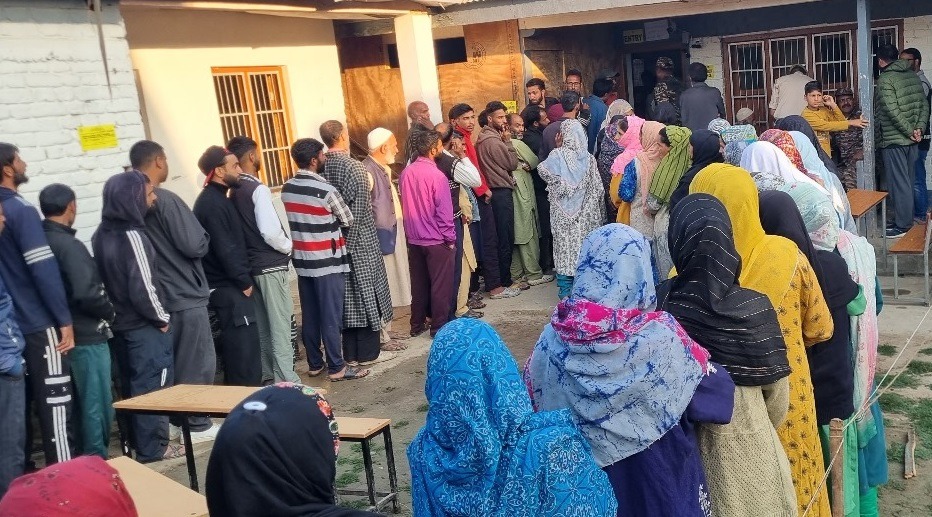By: Dr. Imtiyaz Ahmad Wani
The recent assembly elections in Jammu and Kashmir have ignited a powerful wave of hope and expectations among the populace, who are eagerly awaiting the formation of a new government. With results set to be announced on October 8th, the people are filled with anticipation, yearning for a leadership that will truly address their deep-seated aspirations.
At the forefront of these aspirations is a burning desire for economic revitalization. The youth of Jammu and Kashmir, in particular are grappling with alarming unemployment rates, and they are hungry for change. People want a government that prioritizes job creation, stimulate local industries, and harness the region’s potential for growth. Infrastructure development is equally non-negotiable; the people are adamant about needing better roads, reliable public services, and improved healthcare facilities that can elevate their quality of life and foster a thriving community. The yearning for peace and security is a defining aspect of the people’s aspirations. The people are looking for a leadership that will ensure safety and stability, allowing them to live without fear and with dignity and ensuring the safety for all communities.
Political representation and accountability are also at the forefront of the people’s demands. They want their voices to be heard in the decision-making processes that affect their lives. The citizens are calling for a government that embodies transparency, responsiveness, and a true commitment to serving the interests of all its people, regardless of their backgrounds. They seek a leadership that will not shy away from the tough conversations and will prioritize the needs of the community over political gain.
As the new government prepares to take charge, it faces an immense responsibility. The hopes and dreams of the people of Jammu and Kashmir are intricately tied to the actions and policies that will be implemented in the coming months. This is a pivotal moment, and the new leadership has a monumental opportunity to break the cycle of disillusionment and despair.
The citizens are ready to engage, to support, and to hold their leaders accountable, demanding a future that reflects their aspirations for prosperity, peace, and meaningful representation. The time for transformative action is now, and the people are resolute in their determination to see their vision for a better Jammu and Kashmir realized.
After the 8th of October, there is a significant possibility of a coalition government forming in Kashmir due to the absence of a single dominant party. With no clear largest party emerging from the election results, political parties are likely to engage in negotiations and alliances to form a coalition government. The prospect of a coalition government presents both challenges and opportunities for governance in Kashmir. And, in the event of a coalition government, the political leaders will need to navigate the complexities of shared power, conflicting interests, and the demands of multiple parties. Building strong partnerships, fostering transparency, and prioritizing the welfare of the citizens will be essential for the success and stability of the coalition government.
It is a high time for political parties to demonstrate authenticity, honesty, and a true dedication to serving the community in every aspect. With the anticipated surge in voter participation, the people of Kashmir are expressing a clear demand for change, progress, and a better future. Kashmir has immense potential for growth, especially in sectors like tourism, agriculture, and education. Investments in infrastructure, job creation, and skill development are crucial to uplift the standard of living for the people of Kashmir. The onus is now on the political parties to rise to the occasion, prioritize the welfare of the citizens, and work towards fulfilling the essential requirements of the region.
This is a critical opportunity for political parties to showcase their commitment to stability, economic development, infrastructure enhancement, inclusive representation, social welfare, and the preservation of Kashmir’s rich cultural heritage. By embracing these values and focusing on the genuine needs of the populace, political parties can steer Kashmir towards a path of growth, prosperity, and unity. The region has been marred by conflict and unrest for decades, leading to a sense of insecurity among the populace. The elected representatives must work towards fostering peace and stability in the region, ensuring the safety and well-being of the citizens.
The hopes and aspirations of the Kashmiri people rest heavily on their ability to deliver on promises, address pressing issues, and bring about positive change in the region. Failure to meet the expectations and needs of the populace could have far-reaching consequences for the political landscape in Kashmir. If the leaders falter in fulfilling the aspirations of the people, they risk losing credibility and support, potentially facing a loss of relevance in the political arena for the foreseeable future. The stakes are high, and the leaders must recognize the weight of their responsibilities.
It is imperative that they approach governance with sincerity, integrity, and a genuine commitment to serving the best interests of the Kashmiri people. Only by staying true to their promises and actively working towards the betterment of the region can the new leaders secure their place in the hearts and minds of the populace and ensure a positive political future for Kashmir.
The author can be reached at imtiyazwani07@gmail.com



